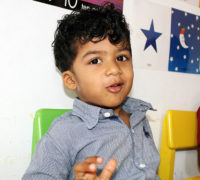I thought it apt to wear a kurtha-inspired shirt that day as I knocked on the tall, black gates of India House. A moment later, as the gates opened wide, I stood dwarfed by the rolling gardens and the vista that housed the Indian High Commissioner to Sri Lanka and his wife. It truly was a scene that took my breath away. Anyone who has had the opportunity and privilege to visit this glorious place would surely agree.
Walking towards what was indubitably a grand mansion replete with copious amounts of expensive wood, and stern-looking mustachioed bodyguards, I mustered my errant thoughts. It took a certain kind of will to dispel whatever giddy atoms of nervousness that floated between my neurons, before I was ushered into the living room.
Good thing I wore the kurtha-esque shirt, I thought. Place me between the vast shelves of books, and I would have blended in properly with the ambient lighting and copious pieces of antique furniture. It was during this uncanny and anxiety-riddled thought that Girija walked in armed with two pugs, offered a disarming smile, sat and said that we could begin.
I took a deep breath, opened my mouth and choked. Nervousness brought on by interviewing VVIPs surely should have its own hallowed name and place in medical lexicon, my mind raged, as I took another deep breath, and let her speak. As Girija spoke, I listened, and couldn’t help but think of Maharani Gayatri Devi. Needless to say, I was enamored by the embodiment of simplicity and quiet class before me.
It’s true: I didn’t hear a word she said at first. She seemed to be more preoccupied talking to her pugs, which was when I realized that she was actually talking to me. She took me on a journey throughout her life, and was assured that it was not all baubles and riches. One cannot always reside in an ivory tower, she murmured.
Unlike your stereotypically spoilt diplomat, Girija’s life didn’t reek of the proverbial bed of roses. There were a great deal of challenges to overcome. The only silver spoon I saw that day was when I was served short eats. But just like the fine emotive swirls that adorned such exotic silverware, Girija’s life took on different inspired paths as well. It was and is a life that can only be described as a mosaic of achievements with their concomitant challenges.
Appearances are deceiving, dear reader. I sat before a woman who might be petite, and soft spoken, but this is an individual who was once upon a time a visiting lecturer at NYU (teaching Renaissance Art), and at CUNY (lecturing on a comparative study of Greek and Indian mythology); teaches meditation and self-healing; is a published author and a journalist; speaks 8 languages; manages a household with ruthless efficiency; cooks a Mutton Rogan Josh to die for; makes pasta from scratch; practices Reiki; and still has the charm and skill to blend in perfectly at a cocktail party boasting fountains of Möet and platters of caviar.
What do you crave, dear Girija? I crave learning — she divulged. And this is what she has dedicated her life to. Maybe this craving has something to do with the genes she inherited from her father (a publisher) and mother (a professor of entomology).
To deracinate is to tear something up by the roots, and this is what she has happily endured as her husband flies from one country to another. But while in Sri Lanka, she adores Nuwara Eliya since the cool climes served to remind her of her own home up north. One of her most treasured highlights in Serendipity was the trek to World’s End while her favorite city would be Galle.
Opportunity keeps company with those who are willing and able, and Girija has thrown herself to learning everything she possibly could in the many different cultures she has been fortunate enough to experience. Citing Plato’s Republic a favorite, she went onto mention that she treasures that 90s classic — Gattaca —when it comes to the silver screen.
How could I possibly conclude an interview without inquiring about any particular penchant she may have for Lankan cuisine? I’m quite fond of the Jaffna Crab Curry, she whispered, citing Ministry of Crab as an all-time favorite restaurant.
Treasuring well over three decades as a diplomat, Girija leaves with her husband to a new land where she will offer much-needed support to his role as a diplomat. Before I left India House, I was left to ponder a simple statement that defined this inimitable lady — I always look forward, and never backward. Consider me an eternal student, Rohitha. This is what truly excites me.



